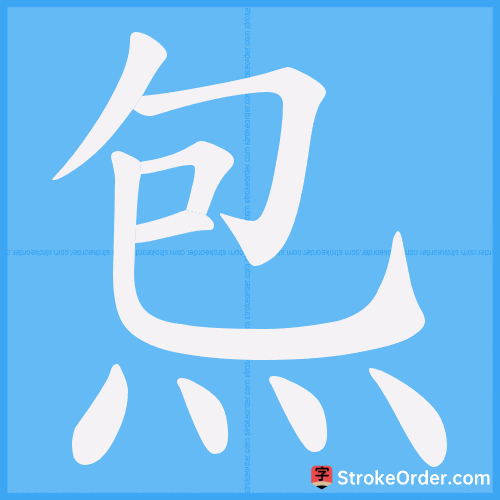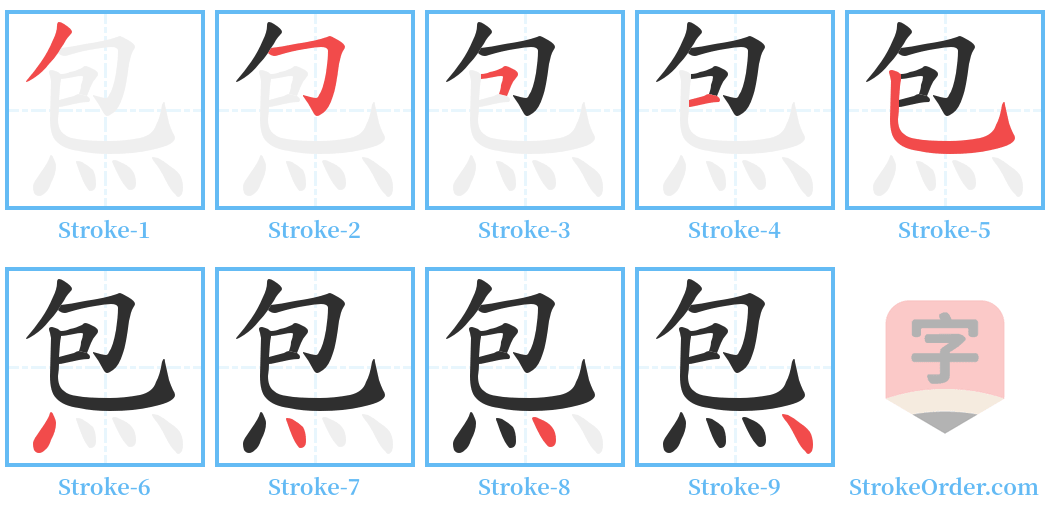炰 Stroke Order
Animated Stroke Order of 炰

Stroke Order Diagrams for 炰

Information of 炰
Pinyin
páo、 fǒu
Radical
灬
Strokes
9 strokes
Usage
★★
Definition
炰
1. (xiū) An ancient term similar to "咆哮," meaning the roar of a fierce beast; also describes a person in a state of rage.
(Similar to "咆哮," this term refers to a fierce roar often associated with wild animals or an expression of intense human anger.)
2. An ancient term related to "炮," which means to wrap meat with fur in mud and then roast it over a fire.
(This refers to a traditional method of cooking meat by wrapping it and roasting it directly over fire.)
Verb: To roast food using fire.
Example from "Book of Songs, Lesser雅, June": "Drink with friends, roast turtle and sliced carp."
Example from Han Dynasty Yang Yun's "Letter to Sun Huizong": "The farmers work hard during the year; at the time of winter, they roast lamb and drink jars of wine."
Noun: Cooked food.
Example from "Selected Literature, Mei Cheng, Seven Articles": "Delicious wine and fine dishes, shall roast and serve special delicacies to treat guests."
1. Steaming and boiling.
(This meaning refers to the method of cooking food by steaming or boiling.)
2. Steaming: “炰鳖鲜鱼.”
(This example shows the word used in the context of steaming fresh fish.)